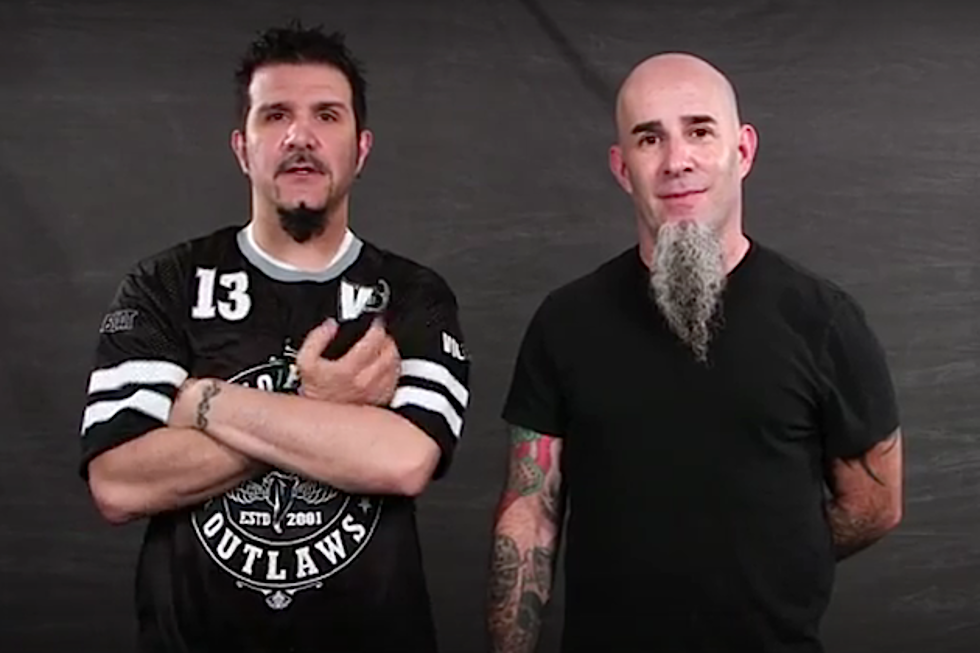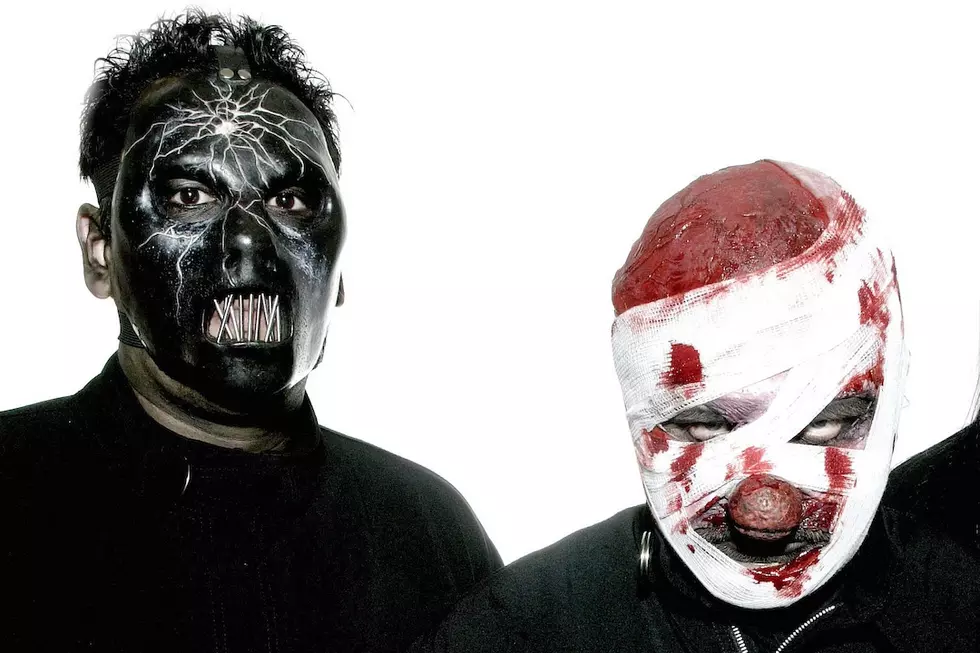
Pristina Frontman Uses ‘The Drought’ to Help Overcome Drug Addiction
A darkness has always loomed over the sludge-induced riffs of Meriden, Conn.'s Pristina, but on the band's most recent release, 'The Drought (Ov Salt and Sorrow),' embracing that shadowy discontent may have saved vocalist/bassist Brendan Duff's life. The album's 23-minute title track -- boasting guest vocals from Today Is the Day's Steve Austin, Starkweather's Rennie Resmini and Bloodlet's Scott Angelacos -- became his avenue to deal with a heroin addiction that was ripping his life to shreds.
In 2003, Duff's main gig was in the hardcore outfit 100 Demons, but he desired to break out and do something away from the pit for a more noise-centric asthetic, causing him to form the band. "We just wanted to play the opposite of what was popular back then," he laughed. Pristina, who grabbed their name from a Faith No More song, have truly captured that in the unsettling confession that is 'The Drought.'
There's a clear '90s experimentation of hardcore and dissonant brands of metal on the album. Was it a goal to capture that late '90s era?
Well, that's sort of where we come from. We're all in our early thirties so we kind of came from that generation -- early, mid, and late '90s. What we called metal core at the time.
We don't set out to write something that's '90s metal core -- the good stuff before metal core became a s---ty thing to be called. We get that a lot so we just kind of embrace it; we don't purposely write to sound like that.
Now it took two year to get 'The Drought' out. What caused the hold up?
It was a nightmare. We started writing the song in 2006. I think it was finally done in 2008. We didn't have much money to record, we we're trying to shop around a demo but no one was really interested. We basically started saving up money to do it ourselves.
During that time we hooked up with Steve Austin, who was into the band. We played with [Today is the Day] a long time ago. We saved up enough money, went down to Nashville and recorded with Steve -- and that's just 'The Drought,' just the song. Originally it was supposed to be a stand-alone thing, like an EP.
We shopped it for almost a year and still no one was biting, so we decided to go into the studio and record more songs. We needed to be doing something more than just playing out. Completely by accident I had all the new songs on my iPod, checking them all out, including 'The Drought.' And it sounded really good that way, very cohesive even though it was a complete coincidence. So we decided to make it a full length.
It took like three or four years to get the God damn thing out.
Steve Austin has always been known to be a huge supporter of every band he works with in production. Did he help you guys out in any unexpected ways?
Straight up from the day he signed on, he supported us. He would do little things he didn't have to do, like call industry people that I wouldn't know and got our name in there. Next thing I know a magazine comes out and we got mentioned or when I call to request to get on a bigger show or a short tour, "Oh, yeah I heard about you guys through Steve Austin." That kind of thing.
Just him going out there for us was f---ing awesome.
What did he think when you told him you were going to cover Today is the Day's 'Temple of the Morning Star' on the album?
[laughs] Oh, he didn't know. It's kind of funny, 'cause he did the record but the one song that's his he wasn't involved in. He didn't even know we did it until we went back to Maine to mix and master with him [Austin had moved from Nashville during that time].
He was sitting there, and he didn't say nothing. I was like, "Oh man, I hope he f---ing likes it." He's just sitting there not giving me anything. I got no read on the guy. It's done and he looks at me, "Dude, that's f---ing awesome!"
It feels like the cover, and the chant chorus of "this life, no life, it's killing me" sets the tone for the 'The Drought.'
That's wild you picked up on that. We did that on purpose. When we were checking out what songs should go where those two just had this thing. It sort of felt like an intro to 'The Drought,' even though they are totally two different things.
The song 'The Drought' is so haunting as it travels a dark path, dealing with your drug addiction. Where does such a song begin to take form?
Originally we had a concept of writing a longer song. I had this concept in my head to do something totally different than anything I'd ever done in any band, let alone Pristina. As we were writing it kept going and going. We knew we wanted this f---ed up middle section; this noise section with Charles Manson [samples] in it.
We almost broke up right before it finished. We had members quit. We'd keep losing guitar players, loosing momentum. We lost three bass players before I decided to play bass so we wouldn't lose any more bass players.
Our lives had gotten dark. I was a full-blown heroin addict to the point it was destroying my life. I was getting divorced. S--- really got bad for me and some other people. As we began to pull ourselves out from this the one thing we had was 'The Drought.' As I started writing lyrics it started meaning a lot to me; it became a fixation, an obsession with this f---ing song.
It's corny, but it's true. It got me through all this. When I was [overdosing], I almost died. I have health issues to this day because of all that stuff. The only thing pulling me through all that was 'The Drought.'
Lyrically it was a metaphor for where I was at the time, all dried up I had nothing left.
Of course the song's depth and desperation does to a new level with the guests on it. Starkweather's Rennie Resmini is known for his emotional output. What was it like in the studio with him?
When we did vocals, it was just me and him in this little vocal booth. We went to Poughkeepsie, N.Y. because it was a halfway point for us. That guy is so f---ing intense. He was turning bright purple, veins exploding out of his head. He is not f---ing around. It's not like some kind of little gimmick. He's so intense; it's so f---ed up.
All of the album is marked by samples, are they placed to push the song's themes along or just for fun?
It's very calculated. I love samples. Remember Buzzov-en? They use samples really tastefully. On this album we used it to enhance the narrative.
On 'The Drought,' that middle section that was pre-concieved, we didn't know what it was gonna be but we wanted something weird there. Then I found the [Charles Manson] thing from the Manson Family Opera. What he's speaking has nothing to do with my lyrics but it works. Something recorded 30 years ago just works perfectly in this song. That's why I love using samples. We'll probably always use them, until we get sued.
More From Noisecreep









